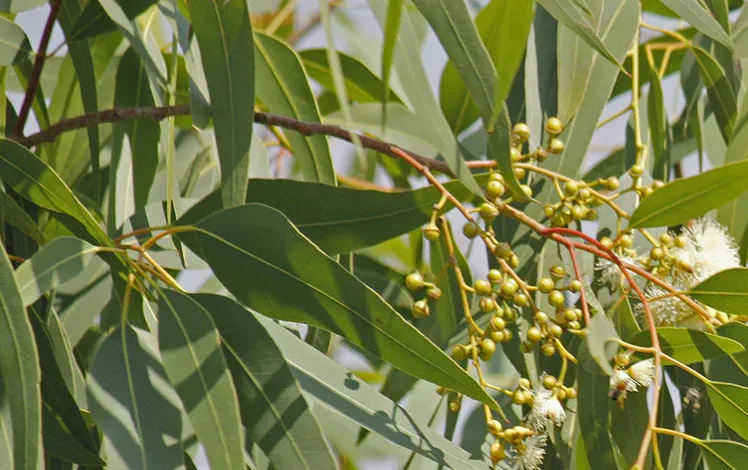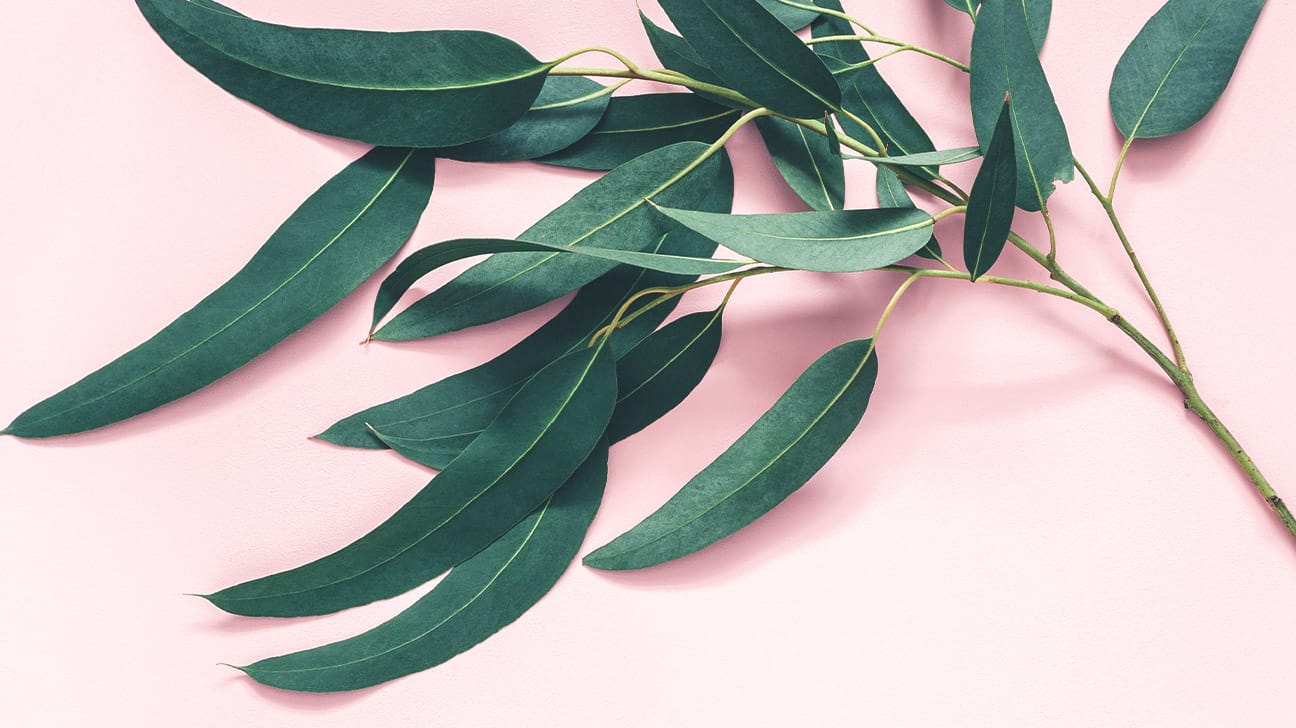Nilgiri Herb: A Complete Overview of Culinary Uses and Benefits in Home Remedies!
Nilgiri Herb Unveiled: Culinary Charms and Home Remedies Wonders. Delight Your Taste Buds with Culinary Creations Infused with the Refreshing Essence of Nilgiri. Dive into Its Home Remedies Arsenal, Harnessing Nature's Benefits for a Healthier Lifestyle. 🍵🏡🌿

Nilgiri herb is a versatile plant that has been cherished for its myriad benefits in home remedies. From respiratory health to skincare, this herb has made its mark in traditional medicine and modern applications alike.
In the world of natural remedies, Nilgiri herb stands tall, offering a treasure trove of benefits. Let's delve into the specifics of this remarkable plant, exploring its history, nutritional composition, home remedies, and much more.
Nilgiri Herb Overview
Origin: Nilgiri herb, also known as Eucalyptus globulus is native to Australia but has found a new home in various parts of the world, including the Nilgiri Hills in India.
Common Names: Locally, Nilgiri herb is known by different English names such as Blue Gum Tree, Tasmanian Blue Gum, and simply, Eucalyptus.
Nutritional Composition
Key Nutrients: Nilgiri herb is rich in essential oils, flavonoids, and cineole. These compounds contribute to its potent antimicrobial and anti-inflammatory properties, making it a valuable addition to home remedies.
Health Benefits: The nutritional composition of Nilgiri herb offers various health benefits, including:
- Respiratory Health: Its expectorant properties help clear congestion and ease respiratory issues such as coughs and colds.
- Skin Care: The herb's antiseptic properties make it effective in treating skin conditions like acne and minor wounds.
- Immune System Boost: Regular consumption of Nilgiri herb tea or infusions can strengthen the immune system, aiding in better overall health.
10 Best Home Remedies with Nilgiri Herb
- Steam Inhalation for Respiratory Relief: Boil water and add a few drops of Nilgiri herb essential oil. Inhale the steam to clear nasal congestion and ease breathing.
- Nilgiri Herb Tea for Cold and Flu: Brew Nilgiri herb leaves in hot water for a soothing tea that can alleviate symptoms of cold and flu, such as sore throat and congestion.
- Nilgiri Herb Infused Oil for Massage: Mix Nilgiri herb essential oil with a carrier oil like coconut or almond oil. Massage onto the chest and back to relieve cough and promote relaxation.
- Nilgiri Herb Vapor Rub: Create a homemade vapor rub by blending Nilgiri herb essential oil with beeswax and coconut oil. Apply to the chest and throat for cough relief.
- Nilgiri Herb Facial Steam: Add a few drops of Nilgiri herb essential oil to a bowl of hot water. Place a towel over your head and inhale the steam to open pores and cleanse the skin.
- Nilgiri Herb Bath Soak: Add a few drops of Nilgiri herb essential oil to your bathwater for a rejuvenating soak. The aromatic steam will help clear sinuses and relax the body.
- Nilgiri Herb Inhaler: Fill a small inhaler with Nilgiri herb essential oil and carry it with you for on-the-go relief from nasal congestion and allergies.
- Nilgiri Herb Chest Rub: Mix Nilgiri herb essential oil with shea butter or cocoa butter. Apply the mixture to the chest and cover with a warm cloth to ease chest congestion.
- Nilgiri Herb Throat Gargle: Dilute Nilgiri herb essential oil in warm water and gargle to soothe a sore throat and kill bacteria.
- Nilgiri Herb Room Spray: Create a refreshing room spray by mixing Nilgiri herb essential oil with water in a spray bottle. Use it to freshen the air and promote respiratory health.
Incorporating these home remedies into your wellness routine can harness the power of Nilgiri herb for improved health and vitality.
How to Grow Nilgiri Herb at Home
Suitable Climate and Soil: Nilgiri herb thrives in well-drained soil and a warm climate. It can be cultivated in pots or directly in the garden.
Planting and Care Tips: Providing adequate sunlight and periodic pruning are essential for optimal growth. This low-maintenance herb is a perfect addition to any home garden.
Nilgiri Herb in Traditional Medicine

Ancient Uses: Centuries ago, Nilgiri herb was used in traditional medicine for its analgesic and antiseptic properties. It played a vital role in treating wounds, respiratory ailments, and even fevers.
Modern Applications: Today, the herb's uses have expanded to include aromatherapy, essential oils, and dietary supplements, showcasing its adaptability in modern healthcare.
Culinary Uses
Flavor Profile: Nilgiri herb boasts a refreshing and invigorating flavour profile that adds a unique twist to culinary creations. With its distinct menthol-like aroma and hint of citrus, Nilgiri herb pairs exceptionally well with a variety of dishes, enhancing both taste and aroma.
Popular Recipes
- Nilgiri Herb Infused Oil:
- Create a flavourful infused oil by steeping dried Nilgiri herb leaves in olive oil. Use this aromatic oil as a dipping sauce for bread or drizzle it over salads for a refreshing burst of flavour.
- Nilgiri Herb Pesto:
- Prepare a vibrant pesto by blending fresh Nilgiri herb leaves with pine nuts, Parmesan cheese, garlic, and olive oil. Serve this aromatic pesto over pasta or spread it on toasted bread for a delicious appetiser.
- Nilgiri Herb Marinade:
- Whip up a zesty marinade by combining Nilgiri herb leaves with lemon juice, garlic, honey, and olive oil. Marinate chicken, fish, or tofu in this flavourful mixture before grilling or roasting for an irresistible main course.
- Nilgiri Herb Salad Dressing:
- Mix chopped Nilgiri herb leaves with Greek yogurt, lemon zest, and a dash of honey to create a refreshing salad dressing. Drizzle it over mixed greens, cucumber, and tomatoes for a light and tangy salad.
- Nilgiri Herb Lemonade:
- Infuse homemade lemonade with Nilgiri herb leaves for a refreshing twist on a classic beverage. Simply steep the leaves in hot water to release their flavour, then mix the infused water with freshly squeezed lemon juice and sweeten to taste with honey or sugar.

Nilgiri Herb Essential Oil Preparation and Benefits
How to Prepare Nilgiri Herb Essential Oil
Nilgiri herb yields a potent essential oil prized for its therapeutic benefits. Here's a step-by-step guide on how to prepare Nilgiri herb essential oil at home.
Extraction Process
Step 1: Harvesting the Leaves
- Choose fresh, healthy Nilgiri herb leaves for optimal oil extraction. Avoid leaves that are wilted or damaged.
- Harvest the leaves early in the morning when their essential oil content is at its highest.
Step 2: Cleaning and Drying
- Rinse the harvested leaves under cold water to remove any dirt or debris.
- Pat the leaves dry with a clean towel to remove excess moisture.
- Spread the leaves in a single layer on a tray or drying rack and allow them to air dry completely in a well-ventilated area. This process may take several days depending on humidity levels.
Step 3: Crushing the Leaves
- Once the leaves are thoroughly dried, use a mortar and pestle or a food processor to crush them into small pieces. Crushing the leaves helps release their essential oils.
Step 4: Steam Distillation
- Fill a large pot with water and place a heat-resistant bowl on top, creating a makeshift double boiler.
- Add the crushed Nilgiri herb leaves to the bowl and cover with water. The water level should be just above the leaves.
- Bring the water to a gentle boil, then reduce the heat to a simmer.
- Place a lid upside down on the pot, with ice cubes or a cold towel draped over it. This will help condense the steam and collect the essential oil.
- Allow the leaves to simmer for several hours, replenishing the water as needed to maintain the steam.
- As the steam rises, it will carry the essential oil from the leaves and into the lid, where it will condense into droplets.
- Once the process is complete, carefully remove the lid and collect the essential oil from the surface of the water using a pipette or spoon.
- Transfer the oil to a dark glass bottle for storage, ensuring to label it with the date of extraction.
Uses and Benefits
Nilgiri herb essential oil is renowned for its various uses and benefits, including:
- Respiratory Relief: Inhaling the vapours of Nilgiri herb essential oil can help alleviate congestion and promote clear breathing.
- Antiseptic Properties: The oil possesses antiseptic properties that make it effective for disinfecting wounds and relieving minor skin irritations.
- Aromatherapy: Diffusing Nilgiri herb essential oil in a room can create a refreshing atmosphere that promotes relaxation and mental clarity.
- Muscle Relief: Diluting the oil in a carrier oil and massaging it into sore muscles can provide relief from pain and inflammation.
By following these simple steps, you can harness the power of Nilgiri herb essential oil for various health and wellness purposes.
Preparing Nilgiri herb essential oil at home is a rewarding process that allows you to enjoy its therapeutic benefits to the fullest. Whether used for respiratory relief, skincare, or aromatherapy, this natural remedy is a valuable addition to any home apothecary.
Nilgiri Herb vs. Other Herbs
Comparative Analysis: Comparing Nilgiri herb with other herbs like peppermint and lavender reveals its unique combination of properties, making it a standout choice in holistic health.
Unique Features: The herb's high cineole content and versatility in both medicinal and culinary applications set it apart from its herbal counterparts.
Potential Side Effects
Allergies and Precautions: While generally safe, individuals with allergies to eucalyptus or related plants should exercise caution. It's advisable to perform a patch test before using Nilgiri herb products extensively.
Dos and Don'ts: Moderation is key when using Nilgiri herb, especially in essential oil form. Pregnant women and those with certain medical conditions should consult with healthcare professionals before incorporating it into their routine.
Nilgiri Herb in Aromatherapy
Relaxation Benefits
Nilgiri herb's distinct aroma holds the key to numerous relaxation benefits in aromatherapy. The essential oil extracted from its leaves contains compounds that can calm the mind, alleviate stress, and promote overall mental well-being.
How to Use in Aromatherapy
- Diffusers: Add a few drops of Nilgiri herb essential oil to an aromatherapy diffuser. The gentle diffusion of the oil throughout a room creates a refreshing and calming atmosphere.
- Inhalation: Inhale the vapours directly from the bottle or add a few drops to a tissue. This method is quick and effective for on-the-go relaxation.
- Bath: Enhance your bath experience by adding a few drops of Nilgiri herb essential oil to warm bathwater. The soothing aroma will help you unwind and de-stress.
- Massage: Dilute Nilgiri herb essential oil with a carrier oil and use it for a relaxing massage. The combination of the oil's scent and the therapeutic touch contributes to a calming experience.
DIY Nilgiri Herb Products
Homemade Teas and Infusions
- Nilgiri Herb Tea Blend:
- Mix dried Nilgiri herb leaves with chamomile and peppermint for a soothing tea. Steep in hot water for 5-7 minutes and enjoy.
- Immune-Boosting Infusion:
- Combine Nilgiri herb, ginger, and lemon zest for an immune-boosting infusion. Let it steep, strain, and sip for a refreshing and health-enhancing drink.
Nilgiri Herb-Infused Skincare
- Antiseptic Facial Toner:
- Create a facial toner by infusing Nilgiri herb into witch hazel. Apply with a cotton pad after cleansing for its antiseptic and skin-soothing properties.
- Nourishing Body Oil:
- Mix Nilgiri herb essential oil with a carrier oil like jojoba or sweet almond oil. Apply as a body oil to nourish the skin and enjoy the invigorating scent.
- Refreshing Facial Mist:
- Prepare a refreshing facial mist by diluting Nilgiri herb essential oil in water. Use it throughout the day to hydrate your skin and maintain a fresh complexion.
- Nilgiri Herb Bath Salts:
- Combine Epsom salts, dried Nilgiri herb leaves, and a few drops of the essential oil for a therapeutic bath. Soak in this aromatic blend to relax muscles and promote skin health.
Sustainability and Conservation
Harvesting Practices: Sustainable harvesting methods ensure the continued availability of Nilgiri herb without harming its natural habitat. Supporting eco-friendly brands contributes to conservation efforts.
Preservation Efforts: Conservation initiatives aim to protect Nilgiri herb and its ecosystem, emphasizing the importance of responsible sourcing and cultivation.
Nilgiri Herb in Popular Culture
Folklore and Stories: The rich folklore surrounding Nilgiri herb adds a cultural dimension to its significance, making it more than just a medicinal plant.
Cultural Significance: From ancient rituals to contemporary practices, Nilgiri herb has woven itself into the fabric of various cultures, symbolizing healing and resilience.
Conclusion
Incorporating Nilgiri herb into your lifestyle offers a holistic approach to health and well-being. From traditional medicine to modern applications, this versatile herb continues to captivate with its unique blend of benefits.
FAQs (Frequently Asked Questions)
- Is Nilgiri herb safe for children?
- While generally safe, it's advisable to consult with a healthcare professional before using Nilgiri herb on children, especially in essential oil form.
- Can Nilgiri herb be used during pregnancy?
- Pregnant women should exercise caution and consult with healthcare providers before incorporating Nilgiri herb into their routine.
- How can I use Nilgiri herb in cooking?
- Add fresh or dried Nilgiri herb leaves to soups, stews, or herbal teas for a delightful flavor and added health benefits.
- Are there any known drug interactions with Nilgiri herb?
- Individuals on medications or with pre-existing conditions should consult with healthcare professionals to ensure there are no potential interactions.
- Where can I find Nilgiri herb products sustainably sourced?
- Look for eco-friendly brands and suppliers that prioritize sustainable harvesting and cultivation practices.



